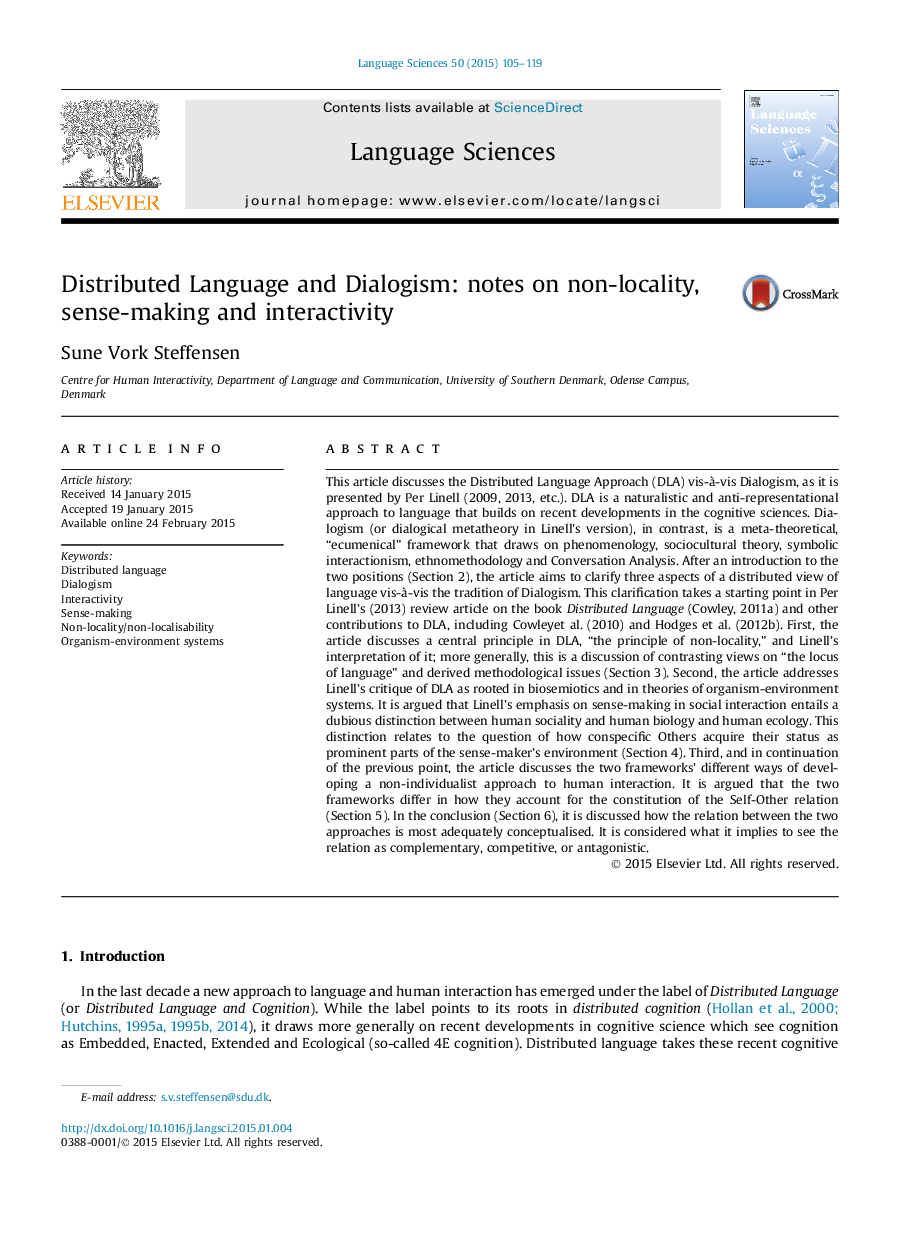| Article ID | Journal | Published Year | Pages | File Type |
|---|---|---|---|---|
| 1103000 | Language Sciences | 2015 | 15 Pages |
This article discusses the Distributed Language Approach (DLA) vis-à-vis Dialogism, as it is presented by Per Linell (2009, 2013, etc.). DLA is a naturalistic and anti-representational approach to language that builds on recent developments in the cognitive sciences. Dialogism (or dialogical metatheory in Linell's version), in contrast, is a meta-theoretical, “ecumenical” framework that draws on phenomenology, sociocultural theory, symbolic interactionism, ethnomethodology and Conversation Analysis. After an introduction to the two positions (Section 2), the article aims to clarify three aspects of a distributed view of language vis-à-vis the tradition of Dialogism. This clarification takes a starting point in Per Linell's (2013) review article on the book Distributed Language (Cowley, 2011a) and other contributions to DLA, including Cowleyet al. (2010) and Hodges et al. (2012b). First, the article discusses a central principle in DLA, “the principle of non-locality,” and Linell's interpretation of it; more generally, this is a discussion of contrasting views on “the locus of language” and derived methodological issues (Section 3). Second, the article addresses Linell's critique of DLA as rooted in biosemiotics and in theories of organism-environment systems. It is argued that Linell's emphasis on sense-making in social interaction entails a dubious distinction between human sociality and human biology and human ecology. This distinction relates to the question of how conspecific Others acquire their status as prominent parts of the sense-maker's environment (Section 4). Third, and in continuation of the previous point, the article discusses the two frameworks' different ways of developing a non-individualist approach to human interaction. It is argued that the two frameworks differ in how they account for the constitution of the Self-Other relation (Section 5). In the conclusion (Section 6), it is discussed how the relation between the two approaches is most adequately conceptualised. It is considered what it implies to see the relation as complementary, competitive, or antagonistic.
